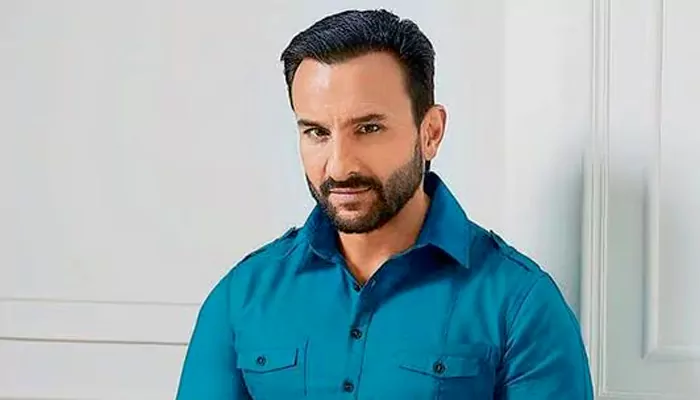
Once Bollywood’s charming prince, Saif now rules both the big screen and the digital world—with characters darker, deeper, and daring.
Born into privilege, Saif Ali Khan had everything fame, a family legacy, and nawabi charm. Yet Bollywood rarely bows to lineage. In the ’90s, his early films struggled to make an impact. The roles were light, forgettable, and while Saif was likable, he seemed unsure of his place. Audiences took note of his hair flips and dimples. Few looked deeper for the actor beneath.
However, that would change slowly and boldly as Saif transitioned from an uncertain start to establishing his true screen presence.

Then came Dil Chahta Hai. It wasn’t just a film—it was a cultural shift. And Saif, as Sameer, became the poster boy of the urban Indian youth. Goofy, confused, yet utterly lovable, he brought comic timing and heart to the role.
It wasn’t his debut, but it felt like his real start. The film gave him the space to be vulnerable and funny without playing second fiddle. Suddenly, Saif wasn’t just a nawab trying to act. He was an actor who could be real.

Saif didn’t linger in his comfort zone. If Dil Chahta Hai marked his breakthrough, Ek Hasina Thi signaled a new direction. No longer the charming chocolate boy—this was a captivating sociopath: dangerous, manipulative, cold. Audiences were surprised, and critics took notice.
Then came Omkara, where he transformed into Langda Tyagi. Gone was the polished star. In his place was a limping, scheming, foul-mouthed villain. It was fearless, it was raw—and it earned him more respect than ever before. Saif had finally shed the safety net.
What followed was a string of experiments. He dabbled in comedy (Hum Tum), romance (Love Aaj Kal), and action (Agent Vinod). But it was the offbeat choices that stood out.
In Laal Kaptaan, he played a Naga sadhu mercenary—blood-soaked, dusty, unhinged. It wasn’t a crowd-pleaser, but it showed just how far he was willing to go. Then came Tanhaji, where he played Udaybhan Singh Rathore—savage, flamboyant, unforgettable.
He was no longer focused on likability. He was pursuing something different: the craft itself.

When Sacred Games landed on Netflix, it changed the rules of Indian entertainment. And at the centre of it all was Saif—playing Sartaj Singh, a cop weighed down by guilt, failure, and existential dread.
He wasn’t glamorous. He was broken. His turban was loose, his eyes tired. But his performance? Magnetic. Through two intense seasons, Saif delivered one of his most grounded, haunting roles yet. In a sea of loud characters, Sartaj whispered—and we all listened.
At 55, Saif Ali Khan has done what few Bollywood actors dare. He’s stepped out of the mold repeatedly. From rom-coms to thrillers, Shakespearean villains to streaming dramas, he’s worn many masks, but never the same one twice.
His legacy isn’t just about hits or awards. It’s about evolution. About taking risks when he didn’t need to. Heritage might open doors, but reinvention keeps them open.
Beyond the characters, Saif himself has become an intriguing figure. He’s witty, well-read, and unexpectedly self-deprecating. In interviews, he blends sharp humour with surprising honesty—admitting to past mistakes, laughing at industry absurdities, and reflecting on his personal growth. From being a party-boy tabloid regular to a thoughtful father of four, he’s lived many lives publicly. And somehow, he carries it all with charm and quiet rebellion.